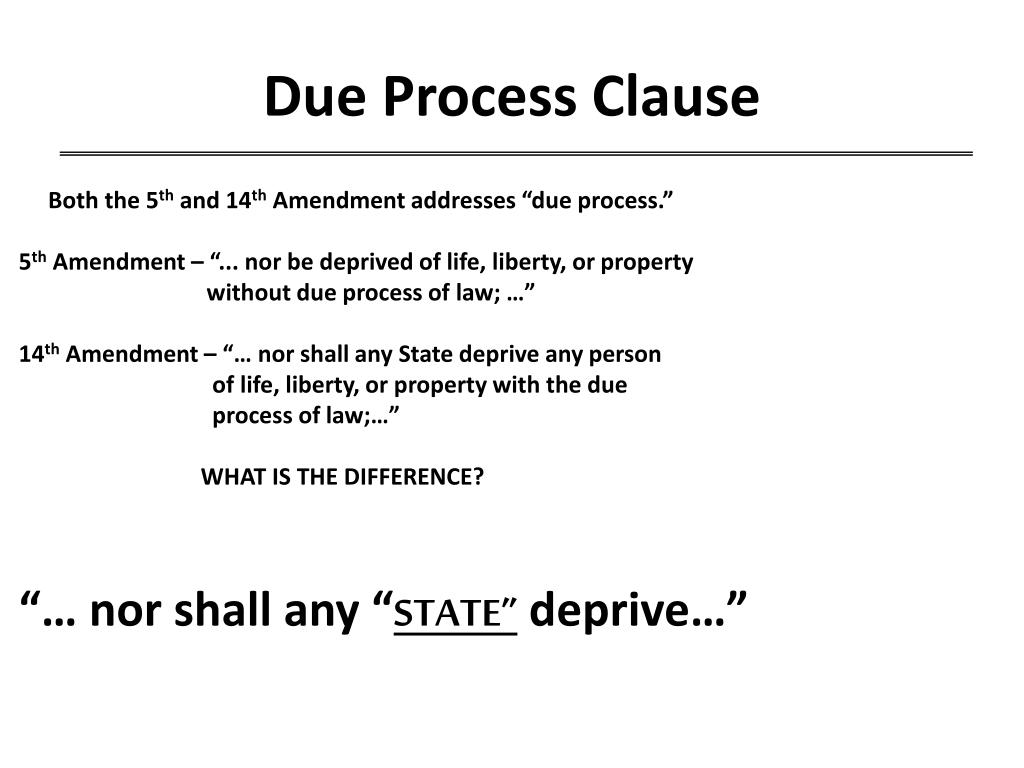
No state shall make or enforce any law which shall abridge the privileges or immunities of citizens of the United States nor shall any state deprive any person of life, liberty, or property, without due process of law nor deny to any person within its jurisdiction the equal protection of the laws. No person shall be held to answer for a capital, or otherwise infamous crime, unless on a presentment or indictment of a grand jury, except in cases arising in the land or naval forces, or in the militia, when in actual service in time of war or public danger nor shall any person be subject for the same offense to be twice put in jeopardy of life or limb nor shall be compelled in any criminal case to be a witness against himself, nor be deprived of life, liberty, or property, without due process of law nor shall private property be taken for public use, without just compensation.Īll persons born or naturalized in the United States, and subject to the jurisdiction thereof, are citizens of the United States and of the state wherein they reside. One of the most well known and cherished of constitutional phrases (due process) appears in the Fifth Amendment: nor shall any person be deprived of life. The Fourteenth Amendment Due Process Clause has also been used to apply portions of the Bill of Rights to the States under the doctrine of "selective incorporation." Civil Service Due Process Amendments - Makes certain employees in the excepted service (civilian positions in the executive branch specifically excepted from civil service requirements) subject to adverse personnel action provisions respecting removal, suspension for more than 14 days, reduction in grade or pay, or furlough for 30 days or less.
#Due process amendments trial#
The Fifth Amendment relates primarily to procedural due process the Fourteenth Amendment also supports the concept of substantive due process. Due process of law obligation of contracts taking or damaging of private property prohibited discrimination jury trial in civil cases. For state and local governments, due process is provided by the 14th amendment.


Due process protections were extended to the states through the 14th Amendment. Due process rights are established through the 5th Amendment. For the federal government, the 5th amendment guarantees due process. Due process is a complicated and often misunderstood legal concept, especially as it applies to criminal law. Fifth Amendment due process is separate from, although similar to, due process under the Fourteenth Amendment. An individual is guaranteed due process by one of two amendments depending on whether the issue involves the federal government or a state government. One important aspect of the Fifth Amendment is known as due process, or the requirement that the government cannot deprive a person of their freedom or property without going through the court system.


 0 kommentar(er)
0 kommentar(er)
